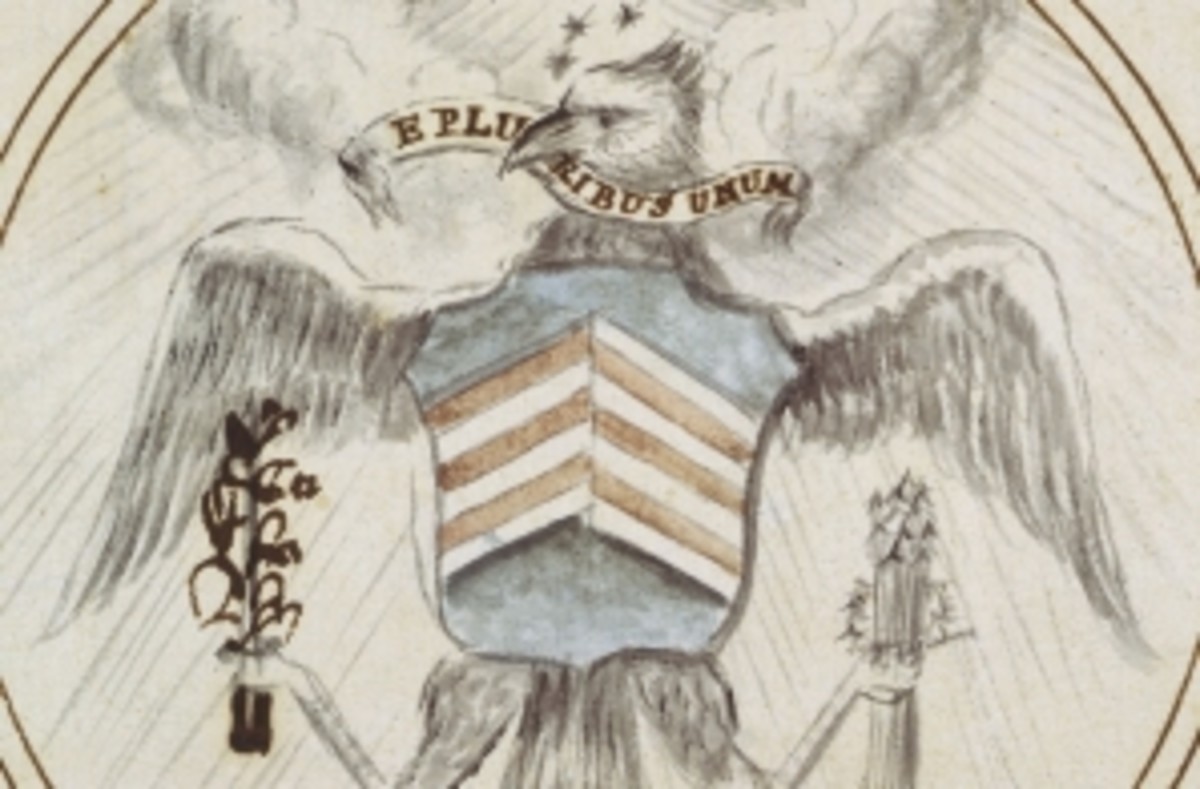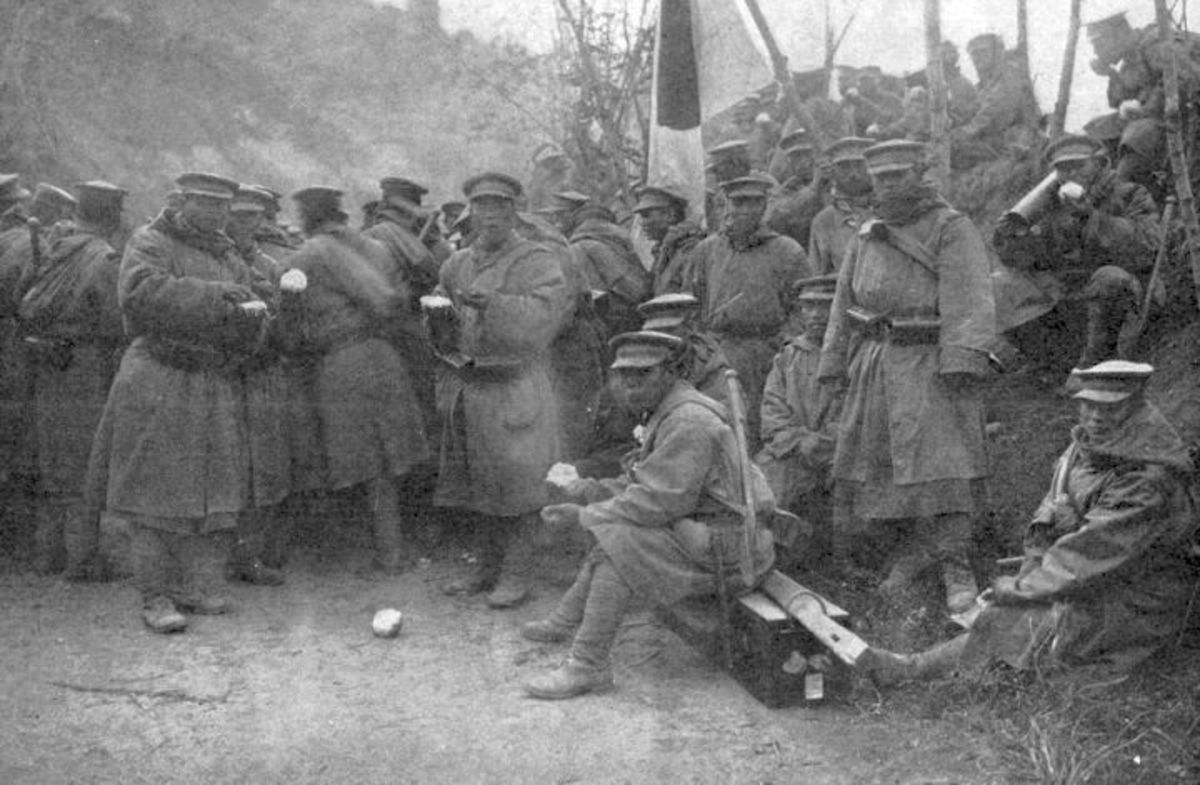- HubPages»
- Education and Science»
- History & Archaeology»
- History of the Modern Era»
- Twentieth Century History
Johovah's Witness Cases and Religious Freedom in America
Johovah's Witness Cases and freedom of religion
By Michael Mikio Nakade
(In an imaginary history classroom where the First Amendment is being discussed. Below are exchanges between a legal scholar and students.)
Scholar: The First Amendment to the Constitution of the United States guarantees the freedom of religion. It says: Congress shall make no law respecting an establishment of religion, or prohibiting the free exercise thereof. Anyone here wants to explain why religious freedom is deemed so important in America?
Student 1: My guess is that Americans didn’t want to make the mistakes that Europeans made after the Reformation in the 16th century. There were many wars that were caused by differences in people’s religion. Granting religious freedom must have been the way to stop the religion-inspired conflicts in America.
Scholar: Your guess is right. I may also add that Jefferson and Madison insisted that religious freedom was a way to guarantee authentic devotion in religion. In other words, if people were forced to join one particular group, people’s motive to join the group would not be genuine. Only by guaranteeing religious freedom, people would become truly devotional because that’s what they chose to do. But, let me ask you this: Can we do whatever we want to do in America as long as what we do truly reflects our religious faith and practice?
Student 2: Yes. That’s what the Free Exercise Clause is. Congress cannot prohibit our free exercise of religion.
Scholar: Okay. But, what if I join the heretical Mormon sect in Northern Arizona and practice polygamy openly? What if I marry five different women all at once? Will the government in Arizona let me do it, legally on the ground of The Free Exercise clause?
Student 2: Well, that’s a little extreme. I think behaviors or conducts that are threatening the health of the community will be prohibited regardless of religious beliefs. What I meant by the freedom of religion was the freedom of belief. Different beliefs, doctrines, and dogmas among people ought to be tolerated. Polygamy is bad, and it should be illegal, even if a guy uses his religious faith to justify it.
Scholar: Very good. You now made a distinction between ‘belief’ and “actions.” In fact, there is a legal precedence over the practice of polygamy. The man was arrested and later convicted. His appeal denied. So, yes, the freedom of religion is not unlimited.
Now, I want to look at actual Supreme Court cases involving Jehovah’s Witnesses in the 1930s. Does anyone here not know this minority group? Okay. I see one hand going up. Maybe a student here can explain it to that gentleman over there.
Student 3: Before I say anything, I want to make sure that no one here is associated with the group. (He looks around and sees no changes in people’s expressions.) Okay. The group is really serious about their beliefs and practices. They spread their beliefs through door-to-door and give out their literature. They preach the end-of-the-world doctrine and urge people to join their group so that people can be saved at the end. Oh, one more thing. They don’t believe in holidays and blood transfusion.
Scholar: Very nice overview of the group, I think. Let me ask you this question: are they popular among non Jehovah’s Witnesses?
Student 1: No. I don’t know too many people who want to hang out with them. They want to convert non-members to their group, and that can be annoying. I think they are good people. I mean, they don’t go on a drinking binge or anything like that. But, in terms of acceptance in our society, no, they are seen as slightly weird.
Scholar: Thank you for your honest opinion on the group. Now, let me ask you this then: Does Jehovah’s Witness deserve the First Amendment protection like anyone else?
Student 2: It depends, I guess. If they do something really outrageously obnoxious, then, like the Polygamists, they should be arrested. But, if they just want to believe something different, yeah, by all means, they must be allowed to believe whatever they want.
Scholar: I like how you said it. Very good insight. Now, let me tell you the actual incident that happened in 1935. There were two Jehovah’s Witness children attending a public school in Pennsylvania. They refused to salute the flag of the United States at their school, resulting in being expelled. It led to a legal action, and the case reached the Supreme Court in 1940. Any questions so far? (One hand goes up.) Yes.
Student 3: Why did these Jehovah’s Witness kids refuse to salute the National flag?
Scholar: That’s because in their religion, the flag saluting is deemed idol worship. They point to the passage found in the Book of Exodus 20:4-6. In their mind, the U.S. flag is a form of idol, and thus, no one should bow down to a flag.
Student 4: I never thought of that. But then gain, this is Jehovah’s Witness. They tend to get upset over something harmless like flag saluting and blood transfusions. Oh well. That’s their right, I guess.
Scholar: That’s right. Now, what do you think the court did? Did they think that the school district in Minersville, Pennsylvania was wrong in expelling these two kids? Or they thought the school district was correct in their handling of the matter. (Seeing one hand going up.) Yes.
Student 5: I bet the Supreme Court decided that the school district was wrong because children’s right to freedom of religion was ignored.
Student 6: I don’t think so. In those days, people were really patriotic. It was expected that school children participated in flag saluting and the pledge of allegiance. Letting these two kids get away with something like this might open the floodgate. I bet the court supported the school district in Minersville.
Scholar: Both of you guessed well. The Supreme Court ruling was in favor of the school board. It was an 8-1 decision. The slam dunk - no brainer. The lone dissenting vote came from Justice Stone, who supported the right of this small and helpless minority to express their religious beliefs. The majority opinion was based on the belief that flag saluting was not a religious ritual and that students in America’s public school should be trained to be patriotic. As with the rest of the country, the court felt it was appropriate to expel students who did not respect the symbol of the nation.
Student 5: Is this the end of the story?
Scholar: Of course not. What happened next frightened the legal-minded people in America. With the court’s decision, the violence against the member of Jehovah’s Witness skyrocketed. The mob mentality took over. People mistakenly thought that the Supreme Court gave them the go ahead to attack their Jehovah’s Witness neighbors. In 1942, three justices openly said that the case was wrongly decided.
Student 1: Okay. So, what happened next? The Court changed its mind?
Scholar: You are ahead of me, but that’s correct. The similar case involving a school district and the family of expelled Jehovah’s Witness reached the Supreme Court in 1943. This time, the decision favored Jehovah’s Witness. The Court struck down the state law in a six-to-three decision. Justice Jackson wrote for the majority. Listen to his words: “The Bill of Rights was designed to place constitutional rights ‘beyond the reach of majorities.” In other words, extremely unpopular views and beliefs, too, must be protected. That’s what the Bill of Rights is for.
Student 3: That’s nice, but the court’s decision was changed only because of the violence against the Jehovah’s Witness. If the mob didn’t attack them so much after the first case, the Court would not have changed the earlier decision. I mean, the first case was decided by an 8-to-1 decision.
Scholar: Your observation is very sharp. One Justice said this: “The Court should not bend to the pressures of the day, and the shifting winds of doctrine.” What these two cases demonstrate is the difficulty in determining how much liberty is too much to run an orderly and unified society. Ideally, you want everyone to participate in the event that honors the country, and yet at the same time, you want to allow different opinions and beliefs to be expressed. In a democratic and free country like America, there exists a tension between a desire for unity and a desire for diversity which happens because of civil liberty. Religious freedom is a wonderful thing to groups that you approve. But are you tolerant enough to give the same rights and freedom to groups that you don’t approve? That’s the question.
Student 4: So, are you saying that the law is never a solid thing? Can it mean one thing one day and another thing on another day? It sounds like the meaning of the law is at the mercy of the changing winds of popular sentiment.
Scholar: At this very moment, I will neither agree nor disagree with your statement. I will, however, say that the law is not as black-and-white as we would want it to be. In conclusion, let me quote the immortal words of Justice Oliver Wendell Holmes. He said: “The life of the law has not been logic: it has been experience.” I want you to think over this quote tonight when you are at home. Thank you for listening and participating.
(The author relied on two sources for the above work: 1) The Teaching Company’s Lecture Series The American Identity, Lecture 32, “Oliver Wendell Holmes “The Jurist” by Prof. Patrick N. Allitt and, 2) The Teaching Company’s Lecture Series The History of the Supreme Court, Lecture 17, “Beyond the reach of Majorities,” by Prof. Peter Irons.








